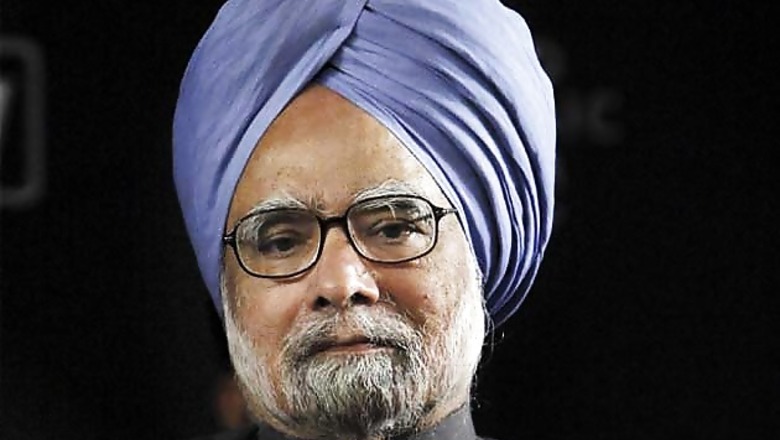
views
New Delhi: Prime Minister Dr Manmohan Singh maintains that the Indian economy is still doing better. Dr.Singh, who is in Indonesia to attend the ASEAN meet, spoke to an Indonesian newspaper 'Kompas'. Following are the excerpts from the interview.
What about sluggish performance of Indian economy?
If you leave aside last year's economic performance, in the previous nine years, the Indian economy has grown at an average annual rate of about 8% per annum. This is the highest rate of growth achieved by India in any previous decade. Last year, our growth rate declined to about 5%, partly because of the recession in the global economy, including the Euro zone and slow growth in US and Japan. India imports nearly 80% of its oil requirement and rising oil prices and slump in exports have hurt our trade balance. There are also some supply side bottlenecks in India, which we are addressing through policy and administrative reforms.
However, our economic fundamentals remain strong. Our savings and investment rates are still over 30% of GDP. Given our capital output ratios, we can restore the growth momentum to 8% per year in the short to medium term. We have taken a number of reform measures to boost domestic investments, attract more foreign investments, strengthen the financial sector and improve and simplify the tax regime. We have launched a broad range of entitlement programmes for the vulnerable sections of our population that require special attention of the government. And we are purposefully addressing the fiscal and current account deficits. At the same time, we will persist with our open trade regime. I am confident that the impact of these measures will be visible soon.
The free fall of the Indian Rupee has been a matter of concern. The Indonesian Rupiah has also depreciated. What are the precautions/measures we need to take as developing countries to bring about stability in the currency?
Emerging economies have been affected by the prolonged global economic crisis and uneven and uncertain recovery. Slowdown in our exports and in inward flow of investments has affected growth and balance of payments. The unconventional monetary policy followed by major developed countries and expectations around its reversal had induced huge volatility in the financial and currency markets. India and Indonesia are part of the G20. The need for enhanced international coordination and communication on policies was emphasised at the G20 Summit in St. Petersburg in September. Sustained global economic recovery will benefit emerging economies.
However, each of us also needs to take appropriate national measures to accelerate economic growth, attract foreign investments and boost exports, including by leveraging the competitiveness generated by currency depreciation.

















Comments
0 comment